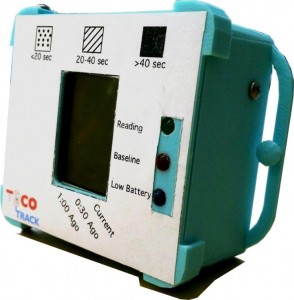How to effectively manage an engineering design team
The design phase of an engineering project is usually the most complex and crucial portion of any engineering project. Effective management of the personnel and resources is important in making sure that the project is completed within budget and in a timely fashion.
Most design engineers are creative and it is important to provide them with enough flexibility to allow them to unleash the creativity in them. A good manager realizes the potential in each of the engineers and maximizes their input in any given project. Since most projects are time-specific requiring input from a diverse group of engineers and support staff, how do you effectively manage all involved in a design process and maximize your output through reduced overhead and constructive use of billable hours? This guide points out some tips that you should look into while managing an engineering design team.
1. Personnel » 2. Roles » 3. Motivation » 4. Communication » 5. Progress Monitoring » 6. Feedback
1. Choosing the right people
You need to be proactive and plan for resources with the right mix of skills. In any project, there will be multidisciplinary activities and you will need people with different skill sets. The hiring process is crucial, and it is a good idea to involve the entire team during the hiring process to allow everyone in the team to have insights into who will be joining the team.
2. Describe roles clearly
The importance of defining roles and responsibilities need not be over-emphasized. The role of each person has to be very clearly laid down, preferably on a project guide and made available to everyone on the team. The relationship each team member will have with others will also have to be defined. Each member had to assigned roles to match their skill sets and capabilities. If there is an overlap in the activities or roles, it is important to assign responsibility to one person rather than leave it to them to decide.
3. Motivation
Not all team members will be from the same background. Each of them will be knowledgeable in their own domain and also possess different skill sets. To ensure smooth functioning of the team, it is important to keep all of them motivated at all times. Treat all the members with respect and encourage them to work freely within their boundaries. The most successful teams benefit from the cross disciplinary knowledge that each one brings to the table.
Project Management Insights
3. Open Communication
As the project progresses, it is very likely that the time and cost pressures will be on the rise. It is vital to keep the communication within the team open and positive. Conflicts will arise along the way and rapid conflict management is required to set the team back on to the track. It is important to keep relationships at a very professional level and not let personal conflicts affect the team performance. As a team leader, you must ensure that all team members get frequent feedback so that they have time to correct their actions. Also, you should be open to criticisms from the team. It is also a good idea to have a central location when all records pertaining to the project are store. This eliminates the likely event of crucial data disappearing.
5. Progress Monitoring
You must establish a system of progress monitoring. All design projects have progress reporting to the client or senior management but apart from that you must have a monitoring system within the team. This can be done on a daily or weekly basis depending on the severity of the deliverable. Make the progress known to all members and help them evaluate their positions.
It is important to remember that you are dealing with people and it is required to satisfy the emotional needs. Give compliments and thank yous to deserving employees. This goes a long way in helping your employees realize that their work is appreciated.
Other rewards such as sponsored get-together and personalized messages during the course of the project can help a long way in effectively managing a team.
6. Provide constructive Feedback
At the end of the project is close out the project by giving constructive feedback to all members to help them perform better in their future projects.





